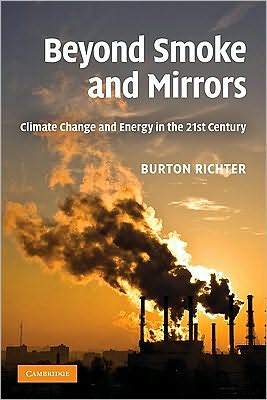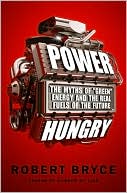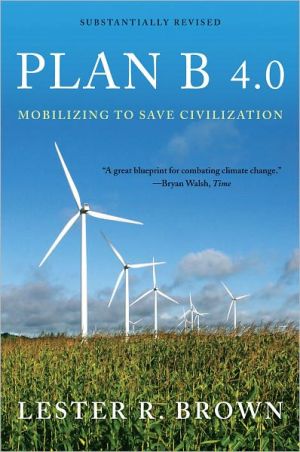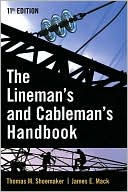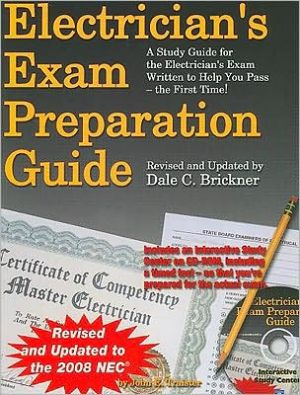Beyond Smoke and Mirrors: Climate Change and Energy in the 21st Century
One of the most important issues facing humanity today is the prospect of global climate change, brought about primarily by our prolific energy use and heavy dependence on fossil fuels. Continuing on our present course using the present mix of fuels as the world economy and population grow will lead to very serious consequences about which there are many claims and counterclaims. This has generated a fog of truths, half truths, and exaggerations, and many people are understandably confused...
Search in google:
Nobel Prize-winning scientist's assessment of options for switching to sustainable energy provision to avert potentially disastrous consequences of climate change.
Preface ixList of units xiList of conversion factors xiiiList of abbreviations xv1 Introduction 1Part I Climate 72 Greenhouse Earth 9Technical Note 2.1 The science of the greenhouse effect 133 Climate modeling 163.1 Introduction 163.2 The first climate models 163.3 Climate change goes big time 183.4 The big problem: lifecycle of greenhouse gases 203.5 The global carbon cycle 21Technical Note 3.1 Other greenhouse gases 24Technical Note 3.2 Geoengineering 254 The past as proxy for the future 274.1 A short tour through 4.5 billion years 274.2 The past 400 000 years 284.3 The recent past 305 Predicting the future 345.1 Who does it? 345.2 How is it done? 365.3 Results 405.4 Where are we? 44Part II Energy 476 Talking up arms against this sea of troubles 496.1 Introduction 496.2 Energy now and in the future 50Market exchange and PPP 546.3 Emission targets 55Technical Note 6.1 Carbon dioxide equivalents 587 How fast to move: a physicist's look at the economists 608 Energy, emissions, and action 658.1 Setting the stage 658.2 Sources of emissions 66Energy and greenhouse emission from fossil fuels 688.3 Reducing emissions 698.4 No silver bullets 718.5 Winners and losers 739 Fossil fuels - how much is there? 759.1 World oil reserves 769.2 World gas reserves 799.3 World coal 819.4 Conclusion 8110 Electricity, emissions, and pricing carbon 8310.1 The electricity sector 8310.2 Pricing carbon emissions: carbon capture and storage 8810.3 Does what goes into storage stay there? 9010.4 Summary and conclusion 9211 Efficiency: the first priority 9411.1 Introduction 94Primary and end-use energy efficiency 9811.2 Transportation 9811.3 Buildings 11011.4 Conclusion 118Technical Note 11.1 CAFE standards 12012 Nuclear energy 12212.1 Introduction 12212.2 Radiation 12512.3 Safety 12712.4 Spent fuel: love it or hate it, we have it 12912.5 Economics 13312.6 Proliferation of nuclear weapons 13512.7 Nuclear power as part of the solution 139Technical Note 12.1 Nuclear power primer 140Technical Note 12.2 France's long-range nuclear development plan 142Technical Note 12.3 Producing material for weapons 145Technical Note 12.4 Extract from the Treaty on the Non-Proliferation of Nuclear Weapons 147Technical Note 12.5 Issues in internationalizing the fuel cycle 14813 Renewables 15013.1 Introduction 15013.2 Wind 15113.3 Solar energy 15613.4 Geothermal 16213.5 Hydropower 16713.6 Ocean energy 16913.7 The electric power distribution grid 169Technical Note 13.1 Photovoltaic cells 17114 Biofuels: is there anything there? 17314.1 Introduction 17314.2 Phase-1: ethanol from starch and sugar 17514.3 Phase-2: cellulosic ethanol 18014.4 Phase-3: other processes 18114.5 Summary 18215 An energy summary 184Part III Policy 19316 US policy - new things, bad things, good things 19516.1 Introduction 19516.2 Reducing emissions on a national scale 19616.3 Bad things 20016.4 Good things 20417 World policy actions 20717.1 Introduction 20717.2 Kyoto-1: the Protocol of 1997 20817.3 Kyoto-2 21118 Coda 217References 219Index 222
\ From the Publisher"It is rare that a scientist with the credentials of the author, Burton Richter, 1976 Nobel Laureate in Physics, attempts to communicate to society in a way that makes such an intimidating and contentious topic as climate change and the complexity of the associated energy issues that must be tackled seem easy to understand. This is a brilliant book written in a very informal way yet packed with easily understood information. Richter’s judgment is superb in assessing the role that the various possible solutions may play in averting a global warming catastrophe. His long experience as an energy advisor to US governments shows clearly in this discussion. He manages to communicate calmly but objectively the urgency of tackling the issues under discussion. ... Richter has been extremely successful in presenting the big picture about the implications of climate change and how the rise in global mean temperature can be minimized. ... It should be on the reading list for 2011 of all concerned citizens. Physicists should read this book because it is a template for how they should proselytize about science to the general public. As Richter observes “I have learned one thing: politics – particularly international politics – is much harder than physics”. This reviewer can only add that the effort to communicate to the political system is well worth the effort." - Harvey A. Buckmaster, Canadian Association of Physicists\ "...the author adequately outlined the past, current and future effects on greenhouse gas emissions without requiring the reader to have any preconceived notions of the topic. I would recommend anyone with an interest in climate change to read this book with complete understanding toward those with a background in high school level general science." CMOS Bulletin\ "As a compendium of vital energy information, clear facts on climate change and insights into how political decisions about energy are made in the U.S. and the world, Richter's book is an invaluable resource. EnviroLine" EnviroLine\ \ \
